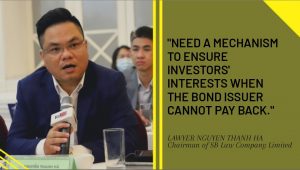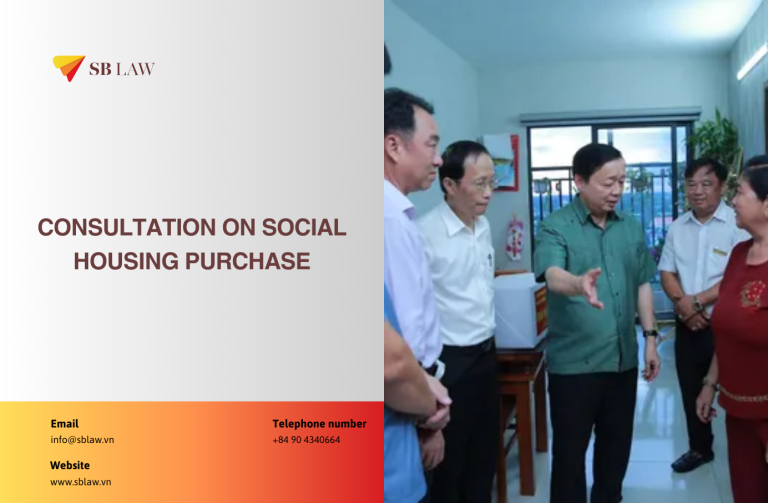The sudden and continuing gap in the corporate bond market, along with the mechanism "bottleneck" is still open...
The latest report of the Vietnam Bond Market Association (VBMA) shows that the corporate bond market (CB) has just extended a quiet month in new issuance.
Specifically, in August 2022, there were 26 private issuances of corporate bonds with a value of 13,930 billion VND and 1 bond issuance to the public worth 300 billion VND. However, there are mainly bonds of commercial banks; other sectors continued to be quite limited, with only 2 issuances from Fuji Nutri Food JSC and Khang Dien Housing Investment and Trading JSC with a total of 1,800 billion VND.
For the past four months, the issuance of new corporate bonds has fallen into a sudden void. From the outburst and continuous increase in the years 2020 and 2021, new issuance activities in non-banking fields have been quiet since April 2022 until now. Investment risks and legal risks were revealed in several cases after the rapid development period, in the same direction of tightening the legal mechanism (especially in the amendment of Decree 153 on the issuance of corporate bonds) considered to be the cause.
However, in the monetary market, the stifling context of prolonged credit growth room, rising interest rates and even stressful periods on the liquidity of the banking system, etc., also made the issuance of corporate bonds more disadvantageous.
It was in the context of suffocating credit room, public investment inflows could not promote its leading role and value, and the capital demand of the business community increased, and the connection to the corporate bond market has been abruptly prolonged.
Meanwhile, the Government has continuously issued orientations and projects to strongly develop the capital market, with a focus on the corporate bond market with the goal of reaching 20% of GDP by 2025.
Is that goal achievable? What is the solution to heal the corporate bond market with the current gap? Which direction does the policy mechanism adjust? Confidence in the market after the risks arise? What are the responsibilities of these market participants?
Towards the above content, on the morning of September 13, Business Life, BizLIVE will hold a seminar "Development goals of the corporate bond market - Trust and responsibility" (at Hoa Binh Hotel - 27 Ly Thuong Kiet, Hanoi).
Speakers attending the Seminar:
- Dr. Vu Tien Loc - Chairman of the Vietnam International Arbitration Center, member of the National Assembly's Economic Committee
- Dr. Vo Tri Thanh - Economist, Member of the National Financial and Monetary Policy Advisory Council
- Dr. Truong Van Phuoc - Member of the National Financial and Monetary Policy Advisory Council, former Acting Chairman of the National Financial Supervisory Commission
- Dr. Le Xuan Nghia - Member of the National Financial and Monetary Policy Advisory Council
- Dr. Nguyen Tu Anh - Director of General Department, Central Economic Commission
- Mr. Don Lambert - Head of Private Sector Development Department, Asian Development Bank in Vietnam
- Dr. Trinh Quang Anh - Chairman of Vietnam Interbank Market Research Association
- Dr. Vu Dinh Anh - Economist
- Lawyer Nguyen Thanh Ha - Chairman of Law Firm SB Law
- Mr. Dang Tran Phuc - Chairman of the Board of Directors of AzFin
Attending the Seminar were representatives of the investment sector, valuable paper trading, interbank market research, analysis and communication blocks of commercial banks, securities companies and individual investors.

Hereby, we would like to introduce the speech of Lawyer Nguyen Thanh Ha at the seminar:
Some recommendations on amending Decree 153 on the offering and trading of corporate bonds.
Decree 153/2020/CP-ND stipulating the private offering and trading of corporate bonds in the domestic market and the offering of corporate bonds to the international market takes effect from January 1st, 2021. With relatively open regulations, it has contributed to the development of the corporate bond market, becoming an important medium and long-term capital mobilization channel for businesses.
However, after a series of violations by corporate bond issuers, typically in the case of Tan Hoang Minh, the Government has strongly directed to strengthen rectification measures and strictly handle violations, promptly stabilizing and developing the corporate bond market.
Accordingly, at the beginning of the QII of 2022, the Ministry of Finance issued a draft amendment to Decree 153/2020/ND-CP (5th time) on private corporate bond issuance.
However, as a lawyer, having advised a number of bond issuers, I realize that some of the provisions in this draft are quite strict, making it difficult for businesses to access this important capital source.
Thus, the legislators and policymakers move from one pole to the other, from being relatively open to being extremely tight, suffocating the market.
The issues that I find unreasonable points in the 5th draft are as follows:
Firstly, Article 1.1 of the Draft (revising Article 5.1 of Decree 153/2020/ND-CP) prohibits enterprises from issuing bonds to contribute capital in the form of capital contribution or purchase of shares in other enterprises.
According to the explanation of the drafting agency in the Report, the regulation aims to limit the situation where parent companies and companies in the same group mobilize to transfer capital to each other.
However, this provision is not consistent with corporate governance principles. In fact, when implementing a business project, the corporation usually will not directly undertake the project but establish a subsidiary to implement that project, especially with investment projects into another field or high-risk projects.
However, in that case, it is difficult for the new subsidiary to obtain loans and is not eligible to issue bonds, so the parent company with a higher credit rating usually plays the role of raising capital, including the method of issuing bonds.
Such regulation will make businesses hesitate to invest in new areas, prevent enterprises' freedom to raise capital and discourage the formation of multi-industry economic groups, especially personal economic corporations.

Lawyer Nguyen Thanh Ha speaks at the seminar
Secondly, Article 1.2 of the Draft (amending Article 8.1.d of Decree 153/2020/ND-CP) requires that the determination of professional securities investor status must be made before every purchase/sell transaction of bonds. This provision needs to be specifically reviewed as follows:
+ Determination at the time of sale is not necessary. The identification of professional securities investors is to ensure that small and non-specialized individuals can participate in this field. At the time of sale, the investor already holds the bond (which has entered the market) and thus this claim will no longer make sense. Furthermore, this inadvertently limits the investor's own right to sell;
+ Determining at the time of purchase is not necessary. According to information in the report, investors can circumvent current regulations by low-cost measures (only 1.5-2 million VND). Redefining investor status at each point of purchase cannot solve this problem, as the purchaser of the bond a few times can still bear the cost, while the buyer of the bond more than once can afford it. may also be considered a professional investor. The problem lies in the criteria for defining securities investors in Article 11 of the Law on Securities, or the new Law on Securities can solve this problem.
Third, Article 1.21 of the Draft (addition to Article 34.2a of Decree 153/2020/ND-CP) stipulates that the issuer commits to buy back bonds before maturity when changing the purpose of use, violating the law on bonds issue bonds, violate the bond issuance plan. However, the regulation needs further consideration in terms of clarity.
The violations of the law on bond issuance and issuance plan violations are relatively wide, in which there are small violations, which do not seriously affect the interests of investors. acquired in this case is not reasonable.
This is similar to the provisions on contract cancellation, that is, only when the issuer commits acts of serious damage to the extent that the investor cannot achieve the purpose of entering into the contract, this right arises.
In addition, the reasonableness in some cases, even though the purpose of use is changed, investors still accept and have the need to keep the bonds. At that time, the regulation that enterprises still have the responsibility to buy back bonds before maturity is unreasonable.
In addition, the Draft also requires enterprises with business activities of the year immediately preceding the year of transactions on the system to have profit and no accumulated loss based on the most recent audited annual financial statements. This regulation is a "puzzle" for start-ups because most of these businesses cannot be profitable right away because the initial investment is too large.
If these regulations are adopted and applied, it is certain that the issuer and investor of privately issued corporate bonds will be significantly narrowed.
Therefore, it is thought that the need to improve the legal system does not mean tightening, but it is necessary to ensure that information reaches the market openly, transparently, and accurately. If you do not understand clearly, do not clarify the goals and desires of the promulgation of the law, but continue to amend it, not only will not reduce the business conditions but also double the bond issuance conditions. That will be very difficult for the market.
Therefore, it is necessary to harmonize when amending Decree No. 153/2020/ND-CP how to tighten management but not inhibit the development of the corporate bond market.
At the same time, for the corporate bond market to develop in a healthy and safe manner, competent state agencies need to promptly settle cases including reviewing and assessing risks from service provision activities. and private bond issues.
In addition, it is necessary to strengthen a stricter but also appropriate legal corridor, close to enterprises, following the market mechanism, and upholding the role of pre-audit.
To make the market healthy, it is necessary to both creating developments for the market and controlling risks. In the immediate future, it is necessary to completely resolve the recent cases to strengthen investor confidence as well as avoid creating a bad precedent.




